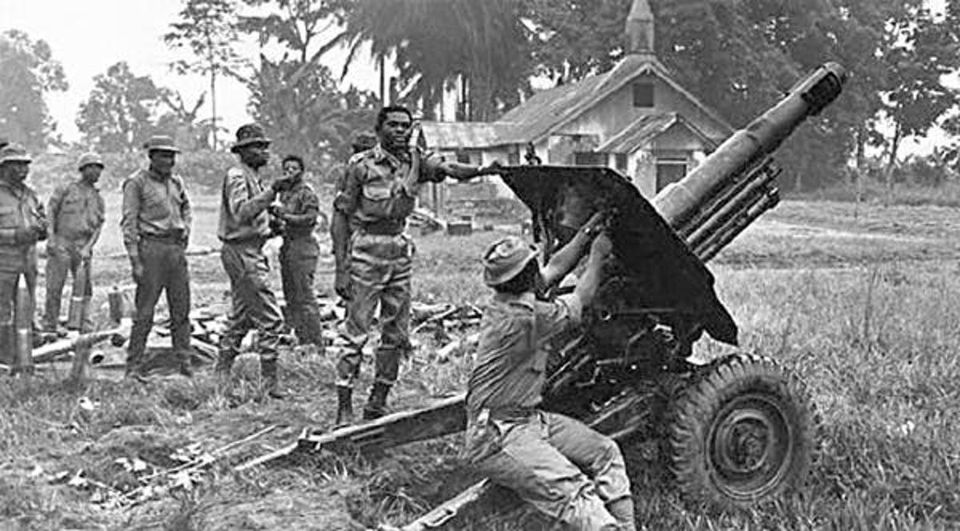On this day 1967:
Nigerian government forces launched an attack on the breakaway Republic of Biafra 5 weeks after its secession to trigger a 30-month armed conflict during which an estimated 3 million people perished in what is now known as the Nigerian civil war.
Post-independence Nigeria remained divided by political, economic, ethnic, cultural and religious tensions. It came to a head with the 1964 election being marred with fraud. Violence erupted in the western and northern parts of the country forcing many to flee.
On 15 January 1966, Majors Ifeajuna and Nzeogwu led others in a coup and killed leading public figures including Prime Minister Tafawa Balewa and the Premier of the northern region, Ahmadu Bello. However, President, Nnamdi Azikiwe survived as he was on vacation in the West Indies.
But the coup was crushed by the leader of the military General Aguiyi Ironsi. And by 16 January 1966 most of the plotters except Ifeajuna who fled the country surrendered. Ironsi, however, failed to try them expeditiously according to military tradition.
Ironsi’s delay further deepened the widespread belief in the north that the coup was carried out by Igbos to supplant the Northern-dominated power structure with him. On July 29 1966, northern soldiers struck in a counter-coup and killed Ironsi.
Yakubu Gowon emerged the head of state but then came the pogrom in which thousands of Igbos were massacred in the north which still held resentment over the killing of their leaders. Gowon promised to secure Igbo lives but failed repeatedly as Igbos were continually killed in numbers.
Consequently, on May 30, 1967, Colonel Odumegwu Ojukwu and other non-Igbo representatives of the Eastern region established the Republic of Biafra. Many diplomatic efforts failed to reunite the country, and on & July 1967 Nigeria launched an offensive against Biafra.











